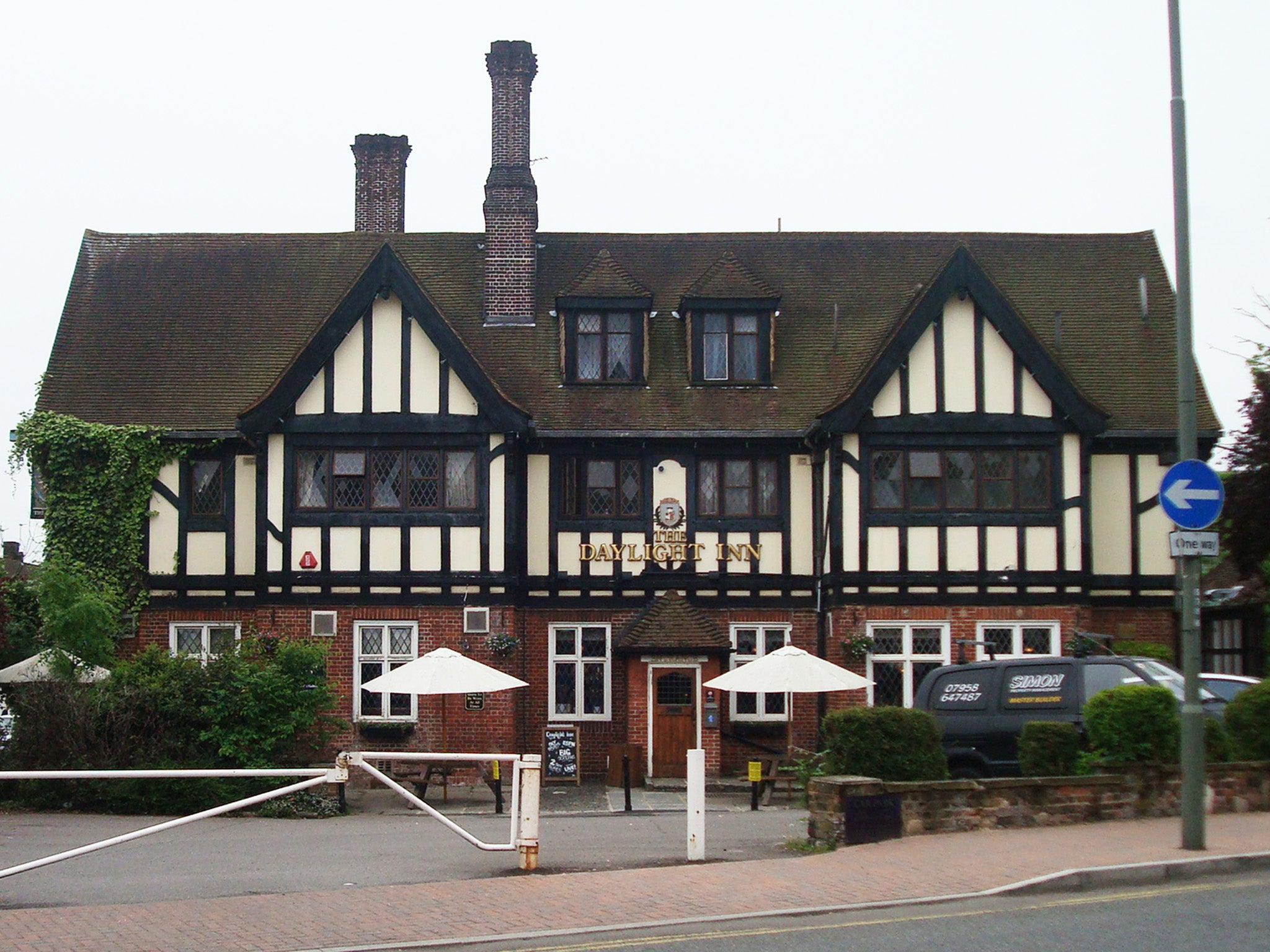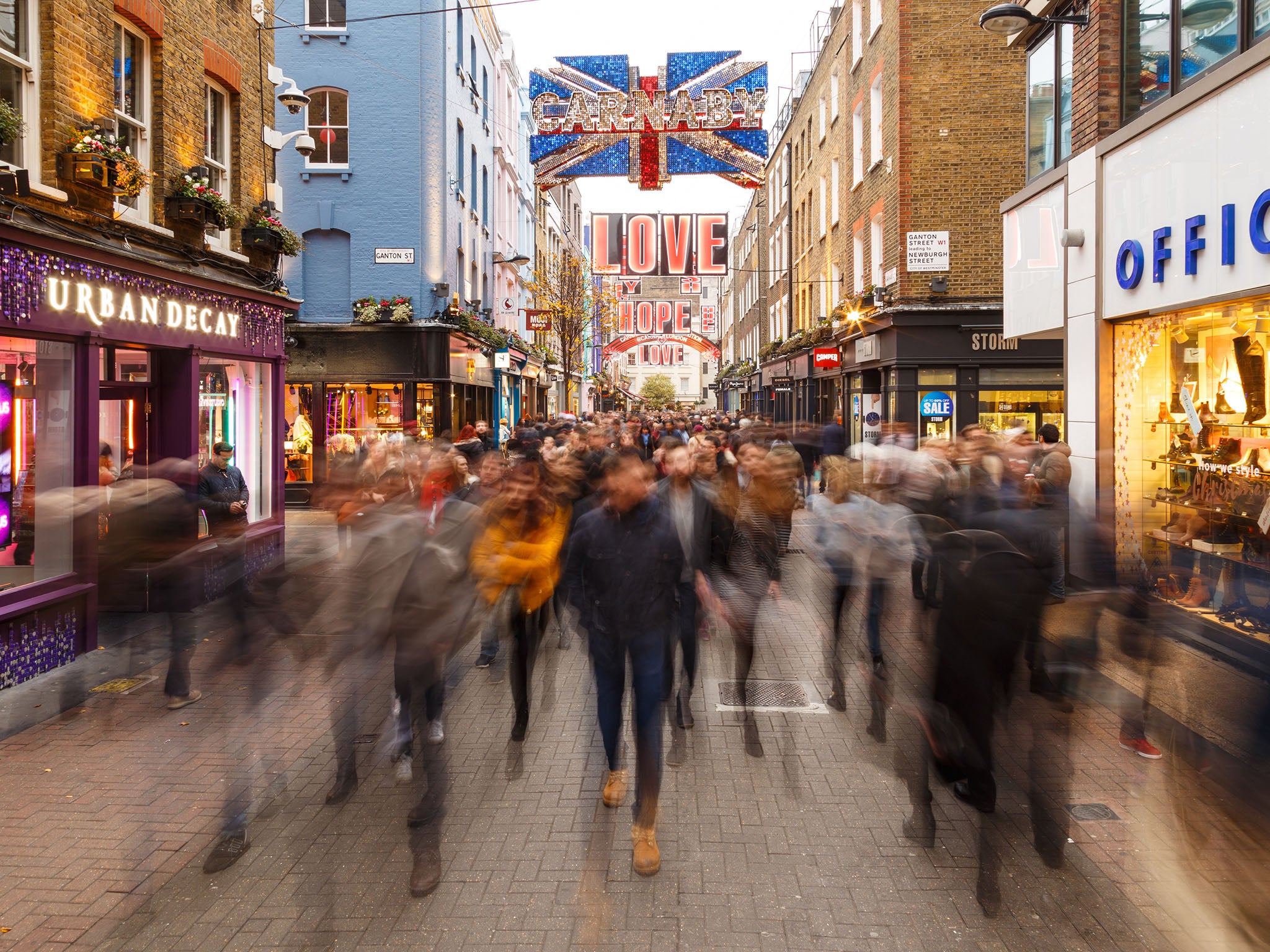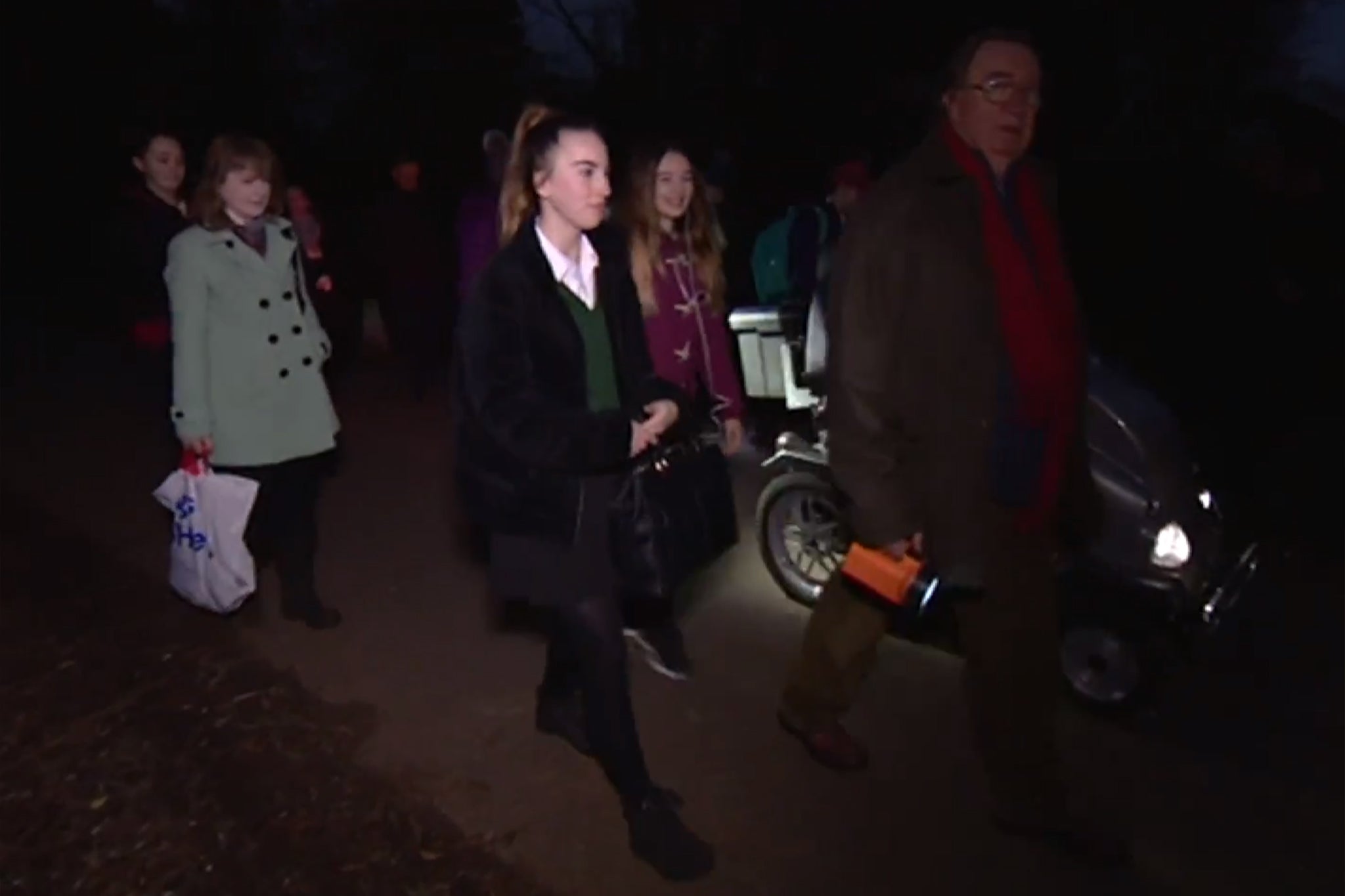Europe will change its clocks for the last time in 2021. Should Britain bother?
Daylight saving could mean more leisure time, less accidents and crime, and a 3 per cent boost to the economy. With so many benefits, why don't we keep it all year round. Mick O’Hare explores this complex and controversial issue


Spring forward, fall back. It’s clock-changing time this weekend and research shows that 7 per cent of people reading this will forget, which apparently leads to one missed appointment for every 15 arranged. So write yourself a note now. Winston Churchill described changing the clocks as “an extra yawn one morning in springtime, an extra snooze one night in the autumn”. The former prime minister seemed ambivalent but there are lots of people out there who simply think it’s more trouble than it’s worth. And they’ve managed to convince the European Union of their cause. Surveys last year showed most EU citizens in favour of doing away with the twice-yearly change of clocks. “The people want this, we will do this,” said European Commission president Jean-Claude Juncker at the time.
And so March 2021 (or October if nations so choose) will be the last time the EU changes its clocks leaving nations permanently on either standard time (winter time) or what is known internationally as daylight saving time (summer time). Each nation is free to choose whichever it feels is best for it. Whether Britain joins them may depend on whether Brexit actually goes ahead and if it does, how un-Brexity compliance may seem to the likes of Jacob Rees-Mogg.
In the UK, which falls on the prime meridian, we have Greenwich Mean Time (GMT) from October to March and British Summer Time (BST) from March to October. BST is the British term for what is known widely elsewhere as daylight saving time (DST) and is one hour in advance of GMT. Most other countries who use daylight saving also change clocks around the same time (although there is no worldwide coordination) which as you’ll have noted is a five-month: seven-month split, not six: six as might be expected. More of that later.
But why did we ever have “daylight saving” in the first place? What was it meant to achieve, and why do some countries have it and others not? And why do some people seem to hate it so much – after all, it’s a mere shift of one hour every few months?
Until the 19th century, time had always been a pretty flexible affair; towns and cities kept their own hours usually marked by a central civic clock. Then the railways arrived. It was no good timetabling trains if the cities they travelled between didn’t have synchronised hours. The Great Western Railway was the first to adopt “London time” in 1840 and the practice spread. In 1880 Britain’s national time – what would become GMT – passed into statute and with it, the opportunity for governments to interfere. The US and Canada followed suit in 1883, again inspired by the growing rail network. Detroit held out for a while but the inconvenience of being offset 28 minutes from the rest of the continent proved too troublesome.
Private businesses had often altered their hours with the seasons to coincide with daylight, and US statesman Benjamin Franklin, while ambassador to France shortly after the American Revolution in 1776, had satirically proposed that Parisians could save on candles if they got up at dawn and stopped working as dusk fell. But New Zealander George Hudson was the first to propose a shift in the time of an entire nation when he wrote to the Wellington Philosophical Society in 1895.
William Willett, a London builder and golfer who disliked dusk cutting short his sporting evenings, took up the cause and wrote to Liberal MP Robert Pearce. In his pamphlet “The Waste of Daylight”, Willett wrote: “Everyone appreciates the long, light evenings. Everyone laments their shortage as autumn approaches; and everyone has given utterance to regret that the clear, bright light of an early morning during spring and summer months is so seldom seen or used.”
David Rooney, the former curator of timekeeping at the Royal Observatory in Greenwich, says: “Willett reckoned you couldn’t persuade people to get up early but you could effectively ‘trick’ them by tweaking their clocks.” Willett suggested advancing the clocks by 80 minutes in 20 minute-blocks over four weeks at the beginning of spring and back again in autumn. He was supported by Sir Arthur Conan Doyle of Sherlock Holmes fame, who said it would add to household happiness if “the head of the family could take his wife and children for some [evening] excursion”.
In the end, Pearce introduced a bill in the Commons in 1908 suggesting just a single one-hour shift, but it failed. The Royal Observatory itself had opposed the bill. William Christie, the Astronomer Royal from 1881 to 1910, said: “Such a tampering with the fundamental principle of time-reckoning would have far-reaching consequences which [have not] been sufficiently considered.” Then, as now, there were a lot of people who didn’t like the idea.

While two small cities in Ontario, Canada, were actually the first to adopt daylight saving in the early 1900s, ironically it took a war, in which Willett would die, for the practice to become widespread. Germany adopted daylight saving in April 1916 during the First World War to alleviate energy supply problems caused by coal shortages, especially in munitions factories.
Britain, other European nations and then the US, after it entered the war, were forced to follow suit, advancing clocks every spring and putting them back in autumn. The UK has been changing the clocks ever since – indeed Britain and Ireland were two of the most enthusiastic advocates once they had overcome that initial opposition. Being so far west in Europe would mean very short summer evenings and very early summer mornings if the British Isles chose to use the same time zone as the rest of Western Europe. Portugal discovered this to its chagrin when in 1992 it left synchronisation with Britain and Ireland and shifted to central European time in alignment with its neighbour Spain. It didn’t work out well. Similarly, the Dutch until the Second World War kept “Amsterdam Time”, which differed from its neighbours to the east by 40 minutes.
How keen is Britain on DST? Well, it’s the only nation in the world to have a pub dedicated to it: The Daylight Inn in Petts Wood, near Willett’s former home. Nonetheless, confusion reigned when it was first introduced, especially with Britain being a maritime nation reliant on tidal charts for coastal navigation. Were these in GMT or BST? It wasn’t at first clear. The general public was not especially enamoured either and agricultural workers complained they had to work an hour longer in the evenings – “Give us back our stolen hour” was a popular slogan in the early part of the 20th century.
Other nations were early adopters of DST, some started the practice and rejected it, while many have never observed it, especially those near the equator and countries on the continents of Africa and Asia. In fact, only a minority of nations now use DST and, it seems, it is falling out of favour even in those.
Why bother at all? You can’t “save” daylight any more than you can create more of it. The reasoning is that citizens of most industrialised societies follow their clocks to plan the working day. If you get up at 7am, you always get up at 7am even if the shift in seasons means you are getting to work in the dark and leaving in the dark. But if you shift the clocks forward or back you can work and spend leisure time in more of the daylight hours while still getting up at 7am and not (in theory at least) upsetting your routine. It’s been a central plank of those in favour of DST from Willett onwards.
Proponents argue that street crime falls because criminals usually act under cover of darkness and road accidents are reduced as daylight fills more waking hours. The Royal Society for the Prevention of Accidents has constantly lobbied for DST to be applied all year round
Other arguments in favour include energy-saving – hours worked during daylight need less heating and lighting, although dissenters say the air-conditioning is on longer in summer and numerous studies dispute whether energy is saved or lost by DST – and the synchronisation of travel patterns for workers. If businesses and schools set their own hours rather than having DST thrust upon them there would be no harmonisation of traffic patterns to and from work leading to difficulties coordinating public transport and a never-ending rush hour. Having that nudge of everybody being forced on to DST mitigates against these problems and synchronising working patterns has potential benefits for society and the economy.
Proponents also argue that street crime such as robbery and assault is decreased because criminals usually act under cover of darkness and accidents, especially on the roads, are reduced as daylight fills more waking hours. The UK’s Royal Society for the Prevention of Accidents has constantly lobbied for DST to be applied all year round.
Leisure time too is increased (golf courses and barbeque sales outlets especially benefit) leading to a fitter population, burgers on the barbie notwithstanding. DST also means more people attend movies, theatres and shops, and evidence suggests it boosts tourism. Richard Kemp, general manager of the Shugborough Estate in Staffordshire, was reported in The Guardian as having introduced BST year-round. Not surprisingly it turned out to be a little bit unworkable although Kemp says he wants another go at it. “Britain outside London closes down for tourists in the winter,“ he says. ”An extra hour would probably give us a 20 per cent increase in visitors. We’re going to try it again.” The EU reckons DST means a 3 per cent boost to the economy annually.
DST also comes to the fore during blips in energy supply. During the crisis of 1973 when oil-producing Arab countries introduced an oil embargo in protest at western nations’ support for Israel in the Arab-Israeli war, DST became a useful tool for reducing energy consumption, apparently saving the US 10,000 barrels of oil a day.

But specific crises such as war and oil shortages apart, down the years’ opposition to DST has grown, and there are some pretty cogent arguments against it. While there is a popular myth that DST was introduced to help agricultural workers (it wasn’t, it was to save energy during the First World War as we have already discovered), farmers are some of its strongest critics.
Agricultural hours are generally set by the sun anyway, not by government directive. “And farm work, especially harvesting, is best done after any dew evaporates,” points out Welsh farmer Owen Stock. “So when my workers effectively turn up earlier in summer after the clocks change work can be delayed anyway.” Dairy cows too are sensitive to daily timings, the twice-yearly shift of the clocks disrupts this. Dairy farmer Thomas Lucas says: “Working days are governed by the sun not the clock. You can’t force cows to follow the changed milk train timetable.” And poultry farmers reckon they are the worst affected; apparently a chicken’s circadian rhythm is especially sensitive and egg-laying times are completely disrupted when clocks change. Why did the chicken cross the road? To attend an anti-DST protest it seems.
Of course, it’s not just farming communities who dislike DST. Those who work late into the evenings also dislike it because the extra daylight encourages people to stay out longer, hence it often being dubbed “daylight slaving time” in the leisure industry. And at the other end of the day, postal workers hate it because it means their rounds are more likely to be before dawn. “Forget aggressive dogs,” says Alan Harman, a postal worker in Scotland: “I’m more likely to fall down somebody’s steps in the dark.”
Perhaps the strongest argument against DST, or at least the changes in clocks twice a year, is that accidents occur with more frequency after the time shifts, especially fatal traffic collisions. And apparently lives saved in the morning in autumn do not offset those lost in the evening. However, the counter-argument is that once the initial period has passed, accidents actually reduce thanks to the longer evenings when people are more likely to be driving. Studies show that sleep deprivation is the main cause of these accidents, especially the hour lost in spring’s shift to DST.

There are other adverse health effects too. Changing the clocks disrupts sleep patterns and concentration for up to week according to researcher Yvonne Harrison, formerly at Liverpool John Moores University. Children at school perform worse in exams just after the change and behaviour deteriorates too. A human’s circadian rhythm is almost as sensitive as a chicken’s it seems. Even when the so-called extra hour of bedtime occurs at the autumn shift, most people don’t actually sleep during it because individual humans sleep a relatively set number of hours most nights anyway.
Clock shifts seem to increase the risk of stroke and heart attack according to the American Journal of Cardiology. There’s also evidence that people who rely on drugs such as insulin injections mistime their shots after the clocks change. And apparently cluster headaches are more common immediately after the clocks change. The government of Kazakhstan seems convinced, it abolished DST in 2005 on the grounds of adverse health alone.
And as we said at the top, there’s the economic cost of having to change so many clocks or, for those who fail to do so, the cost of missed appointments, or failing to get to that family gathering or sports event the following day. That’s just downright irritating as is trying to make a telephone call to another nation when they have DST and so do you, but theirs hasn’t started yet and you know you are 10 hours ahead but might not be today. And have you ever tried reading a sundial during BST? Good luck with that.
Arizona state doesn't use daylight saving but the Navajo nation in Arizona does. The Hopi Reservation, totally surrounded by the Navajo nation, doesn’t, leading to it being called the hole in a DST doughnut. Bring three watches!
People who want to stay up late or start work early should be allowed to do so without the “deceit” (as US President Warren G Harding put it in 1922) of the government changing their clocks, runs the argument. (Harding, however, caused confusion in Washington DC while president when he made DST voluntary for private companies but mandatory for federal workers. His plan was quickly terminated.) But, the counter reasoning runs that it surely makes sense for a nation’s citizens to have common agreement about a standard schedule for the working day. And you have to allow for the fact that in nations on the most beneficial latitudes, many citizens really do enjoy the extra sunshine in the evening, irrespective of the obvious suggestion that they could just get up earlier. “I can surf after work until gone 10 in the evening,” says Cornwall resident Jeannine Copeland. “If the clocks didn’t change in summer I’d still finish work at 6pm and only have until 9pm to surf.”
What is not in dispute is that to save daylight or not has had remarkable and unexpected impacts on humanity leading to numerous anomalous and sometimes extraordinary happenings.

Some nations only have it in certain areas. Parts of Australia and two US states still don’t use it, Hawaii and Arizona (except the Navajo nation in Arizona which does, although the Hopi Reservation totally surrounded by the Navajo nation doesn’t, leading to it being called the hole in a DST doughnut. Bring three watches).
Meanwhile, the twin cities of Minneapolis and St Paul, separated only by the Mississippi river, quickly discovered in 1965 that decisions such as adopting DST would be better taken in partnership. The time changed by an hour whenever you crossed the river with rather obvious knock-on effects. It lasted a mere two weeks before they rapidly came to mutual agreement. New York (among other cities and states) initially retained DST after the US repealed it nationally in 1919 following the First World War, because it allowed closer alignment with Europe and its financial exchanges. There’s also truth in the story that senators from Idaho have traditionally voted in favour of DST because the state is famed for its potato production and evidence suggests more French fries are sold during DST months. Americans even used its anomalies to avoid the Vietnam War draft by arguing that standard time and not DST should be used for determining birthdays.
And what do overnight trains do on the days the clocks change? Well, in autumn they hang around an extra hour at a convenient station while – and this really is true – when the clocks go forward in spring they are suddenly an hour behind schedule and all they can do is attempt to make up the time as best they can. Whether passenger compensation schemes kick in, only the train companies would know, but it’s why most nations change the clocks at 2am because that’s when the fewest trains are running.
There have been cases of a first twin being born late in the hour before the clocks go back, with the second one being born just after the change. Therefore the older one becomes the younger one and… It happened to the Cirioli twins of North Carolina in 2007
That 2am changeover time can still cause trouble though. There have been cases of a first twin being born late in the hour before the clocks go back, with the second one being born just after the change. Therefore the older one becomes the younger one and… well, figure it out. And, of course, it had to happen – to the Cirioli twins of North Carolina in 2007.
DST has had political ramifications too. During the Second World War finding the energy necessary to power an island nation like Britain, essentially cut off from much of the world, became a matter of national concern. Double Summer Time was adopted and clocks were advanced two hours instead of one, while in winter they remained an hour ahead of GMT. Interestingly, the Second World War was the only time that a part of the British Isles did not observe GMT or BST. When the Germans occupied the Channel Islands they reset the clocks to Central European Time. This did not go down well. When German High Command wished to visit public buildings or called meetings they would often be left waiting outside a locked door for an hour, the islanders “apologising” for the confusion when they eventually turned up.
And conflict elsewhere had even more disastrous consequences for three West Bank terrorists crossing into Israel from the territory of the Palestine National Authority in September 1999. They were plotting to explode bombs in Israel but forgot to take account of Israel being on DST when priming the timers. They exploded an hour early killing the bombers and not their intended victims.
More benignly, Morocco was hitherto very kind to its mainly Muslim citizens during the month of Ramadan. It set its clocks back one hour so that dusk fell earlier and adherents could break their abstinence earlier. “It’s not cheating, it’s dusk that counts, not the hour on the clock,” argued government official Anis Alaoui. Unfortunately for those fasting the government introduced permanent DST in 2018. However, many Muslim countries do not observe DST at all primarily for this reason. Religion has played a role in DST adoption elsewhere too. Chile delayed its clock-changing day in 1987 to avoid confusing the Pope who was flying in that day. The King of Tonga, however, had no such holy imperative in mind when in October 1999 he decreed his nation’s clocks would be advanced by one hour so Tonga could beat neighbouring Fiji to the millennium. Unlike Morocco which had its citizens’ best interests at heart, this really was cheating.
Other anomalies, according to mentalfloss.com, include an increase in credit-card spending after DST starts, fewer car/koala collisions in Australian states that use DST, and the inconsistency that while there are more traffic accidents after clocks change in Sweden, for whatever reason, this effect is almost imperceptible.
Of course, if you live near the equator where the days are similar length year round there is less imperative to employ DST. And a majority of African and Asian nations have never adopted it while many of those who did have since dropped it. Unconvinced by the purported benefits China, despite it ostensibly spanning five time zones, has a single universal time for the entire nation with no periods of DST. Other large countries such as Russia and India also have no DST with the latter possibly seeing it as an unwanted legacy of British rule. Russia, however, had attempted to adopt year-round DST in 2011, a full hour ahead of winter time but when citizens in some regions complained it didn’t get light until after 9am Vladimir Putin ditched the scheme. “It was crazy,” says 41-year-old teacher Raisa Kvitko. “Sometimes classes would start in the dark.”
Britain had tried the same thing between 1968 and 1971 – it was known as British Standard Time – but, despite traffic accidents being reduced by almost 12 per cent during the three years and the Royal Society for the Prevention of Accidents frequently demanding its return – as in Russia, there were complaints during the winter months. The long dark mornings, especially in Scotland with the sun not rising until 10am, were proving unpleasant if not downright dangerous, particularly for children walking to school.
“My mum used to insist on driving me,” says 59-year-old Andrew McGregor from Inverness, “which in retrospect only created more cars on the roads and more danger.” The disparity in the onset of darkness has led to calls for England and Scotland to be on different time zones. Nicola Sturgeon may approve. “There’s always been a strong geographical element to daylight saving,” says Rooney. “What works for south-east England may not work so well for western Scotland. It tries to be a one-size-fits all solution and fails.” However, other countries such as Argentina, Iceland and, as we know, Morocco are pressing on with permanent DST despite it never being able to please everybody

Egypt, especially, has had an on-off relationship with DST since the British introduced it during the Second World War. When they left it was revoked but reintroduced in 1957 before again being abolished in 2011. By 2016 DST was back on the agenda, ostensibly to save energy and the plan was to introduce it on 8 July 2016. But just three days before, the government cancelled the move.
Citizens had opposed the plan and many were happy that the idea was canned, complaining that the day after the clocks shifted they felt “tired and grumpy”, but businesses were taken aback: EgyptAir argued that the late decision cost them US$2 million after having to contact passengers to remind them that DST wasn’t happening. “To be honest, not many Egyptians were ever keen on daylight saving,” says Karim El Masri, a lecturer in Cairo. “It had connotations of British rule and was popular with our overthrown and unloved former president Hosni Mubarak, but cancelling it three days before it was due to start was simply incompetent.” Israel too has had four bouts of DST although, unlike Egypt, it currently observes the practice.
Tiny nations such as Monaco and San Marino, which are surrounded by larger nations, France and Italy respectively, are rather beholden to whatever their bigger neighbour chooses to do. Both have had to switch to and from, or abolish or introduce DST, at exactly the same time as their adjoinee. Quite astoundingly Antarctica, where there are three months of constant dark and three months of constant daylight in winter and summer respectively, observes DST. But there’s method in the madness, stations there are usually supplied from either Chile or New Zealand and the Antarctic dwellers synchronise their clocks with those nations. Now around 70 nations use some form of DST with only Japan joining China, Russia and India as the only industrialised countries to have no DST at all.
So two questions remain. Considering all the hoo-hah around DST and all those succinct arguments against it why do we still do it? Is it just habit? And the second question (which you might not have noticed or cared about if you’re not a smartypants) is why the two clock changes are not six months apart but instead placed asymmetrically around the solstices giving us seven months of summer time and only five months of standard or winter time?
Let’s answer the boring, anomalous one first. Why don’t the clocks just change on the solstices rather than at some seemingly arbitrary weekend afterwards? Well first up, this tends to be a northern hemisphere thing, many countries south of the equator do change clocks near the spring and autumn solstices. But secondly, because of the angle of the Earth, which is tilted on its axis as it orbits the sun, there is asymmetry in the distribution of sunlight around noon – the number of sunlight hours before noon is not identical to the number following noon. However, this is a small effect and doesn’t account for the October clock change being a full month ‘late’. So perhaps the only credible argument is that because people dislike clock shifts but governments still insist on them it is better to give them more evening daylight while it’s still relatively warm in the northern hemisphere than morning daylight. After October dawn starts arriving too late and so the time limit has been reached.
So why are we still doing it? According to opponents it’s an experiment that was never satisfactorily proven, yet sounds good in practice. But as Michael Downing, author of Spring Forward: The annual madness of Daylight Saving, argued in The Conversation last year: “Despite its name, daylight saving has never saved anyone anything. It’s absurd.” That’s rather damning. He went on to say that it’s pretty certain very little, if any, energy is saved and the only people who like it are those trying to sell you stuff in the extra hour of evening daylight (and even then, only in summer). And not all nations change the clocks on the same weekend which just adds to the confusion. “Totally illogical,” says Downing. Rooney agrees. “What’s wrong with Greenwich Mean Time?” he asked in an article in the Daily Telegraph. He believes there are pros and cons but it would make sense to settle with one or the other all year round.
Public support for DST has waned too. Only a third of Americans, for example, think changing the clocks is worth it, down from majority support a couple of decades before.
And it’s true, we are used to doing it, so just take it for granted. Like weeds it thrives through neglect. Nearly every argument in favour of it has been questioned, and nobody now really knows where the benefits, if any, lie. As the anonymous quote has it: “Only the government would believe that you could cut a foot off the top of a blanket, sew it onto the bottom, and have a longer blanket.” And maybe the EU has cottoned on.
Its new law states that from 2021 the twice-yearly clock changes will disappear. Member states will have the choice of being on standard time or DST all year round. It’s something the northerly Finns, who currently hold the rotating EU presidency, have long lobbied for. Where this leaves Brexit Britain is anybody’s guess. If a withdrawal deal is reached with the EU and the transition period scheduled to end in 2020 kicks in Britain will be bound by the new ruling.
“Daylight saving has so often been about politics,” says Rooney. “A country’s time zone is an expression of who its allies are and who it wants to distance itself from. I’m sure some people will choose to make it a Brexit point. Time is about control which is why it’s contentious.” John Flack, the Conservative MEP for the East of England at the time of the EU’s announcement, rather cryptically said: “We’ve long been aware the EU wants too much control over our lives – now they want to control time itself,” seemingly unaware the ruling gives individual nations more freedom over which time to choose than it did previously. Jacqueline Foster, the Conservative party’s former transport spokeswoman in the European parliament, added: “Quite frankly, this is not a matter that should be decided in Brussels.”
It is unlikely their Brexit Party successors as MEPs will be more emollient. Maybe it will be necessary for an impartial Supreme Court judge to intervene? Whatever, come 2021, there will be fewer EU citizens with an excuse for small talk or even a grouch one spring and autumn morning every year.
And one more thing, don’t find yourself in court in the week after the spring shift in the clocks. Apparently judges are more likely to award you a heavier sentence. It seems the lost hour even affects the impartiality of the judiciary. Boris Johnson beware.
Join our commenting forum
Join thought-provoking conversations, follow other Independent readers and see their replies
Comments